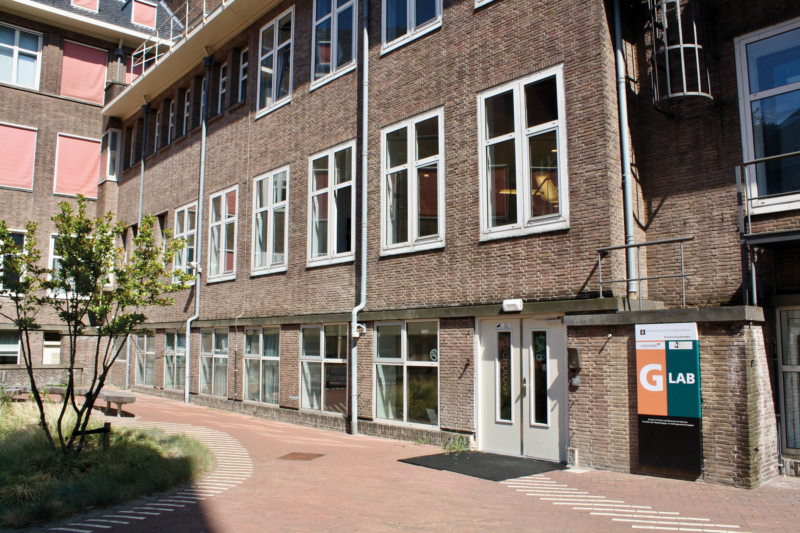

Decolonization is the process of undoing colonialism. Parallel to giving back people’s indigenous land is the idea of intellectual decolonization, the undoing of colonial ideas that presuppose a civilizational hierarchy. Intellectual decolonization is of the utmost importance to Psychology as well, because inherent to it is the idea of giving back people’s voices and making sure everyone is not only heard but also listened to.
So how is the idea of intellectual decolonization relevant for Psychology at the UvA? Take the word ‘tribe’, for example, a word that gets thrown around in lectures a lot. A word like ‘tribe’, often associated with primitive and simple cultures, is almost exclusively used for non-European groups or cultures. Being careful when using such a word is not a matter of being overly politically correct, as some people claim; it is a matter of trying to treat all groups of people equally. A word like ‘tribe’ carries more meaning than one may initially think. Ingrained in it is a notion of civilizational hierarchy that is invisible at first, yet clearly there.
Another example can be seen with the word ‘exotic’. I recall one of my lecturers once calling Namibia an exotic place when comparing it to some place ‘less exotic’ closer to home. In saying that, Psychology’s eurocentric perspective becomes evident – people from Namibia are seen as different; anything non-Western is seen as different. It is upsetting that, after all these years, eurocentrism still remains in academic institutions like the University of Amsterdam and in departments such as our own. How is it that we still define other cultures in colonial terms? Arguably, it is because we still have a colonial mindset due to a lack of colonial awareness and a lack of awareness of our own eurocentric bias. Still, the West is often characterized as enlightened, whereas most of the non-West is usually seen as inferior. Not paying mind to non-Western thinkers in the academic curriculum only adds to this idea, as does calling certain countries ‘exotic’.
Elective courses that transcend the European perspective are not enough. Recently, the Social Psychology department started a Master’s track in Cultural Psychology. As a Cultural Psychology student myself, I believe this is a promising step in the right direction. There are many studies in this field which show that we need to stop believing in the universality and generalizability of the European culture and mind. Instead, we need to embrace diversity and adopt an approach that allows us to listen and learn from a multitude of non-eurocentric perspectives. No one is suggesting the eurocentric perspective should be replaced by another regiocentric perspective – we just need to stop pretending the Western perspective is both neutral and universal. We need to decolonize the curriculum.
It is a shame that a diverse multitude of perspectives is not present in Psychology’s academic curriculum, because it could teach us something important: to think critically. Supposedly, universities do that already. However, I suggest not just approaching other perspectives critically because of our implicit eurocentric outlook. I suggest approaching our own bias critically, instead. Luckily, there are other bright minds around us and around the world with other inspiring perspectives, because there is only so much we can learn from ourselves.

Decolonization is the process of undoing colonialism. Parallel to giving back people’s indigenous land is the idea of intellectual decolonization, the undoing of colonial ideas that presuppose a civilizational hierarchy. Intellectual decolonization is of the utmost importance to Psychology as well, because inherent to it is the idea of giving back people’s voices and making sure everyone is not only heard but also listened to.
So how is the idea of intellectual decolonization relevant for Psychology at the UvA? Take the word ‘tribe’, for example, a word that gets thrown around in lectures a lot. A word like ‘tribe’, often associated with primitive and simple cultures, is almost exclusively used for non-European groups or cultures. Being careful when using such a word is not a matter of being overly politically correct, as some people claim; it is a matter of trying to treat all groups of people equally. A word like ‘tribe’ carries more meaning than one may initially think. Ingrained in it is a notion of civilizational hierarchy that is invisible at first, yet clearly there.
Another example can be seen with the word ‘exotic’. I recall one of my lecturers once calling Namibia an exotic place when comparing it to some place ‘less exotic’ closer to home. In saying that, Psychology’s eurocentric perspective becomes evident – people from Namibia are seen as different; anything non-Western is seen as different. It is upsetting that, after all these years, eurocentrism still remains in academic institutions like the University of Amsterdam and in departments such as our own. How is it that we still define other cultures in colonial terms? Arguably, it is because we still have a colonial mindset due to a lack of colonial awareness and a lack of awareness of our own eurocentric bias. Still, the West is often characterized as enlightened, whereas most of the non-West is usually seen as inferior. Not paying mind to non-Western thinkers in the academic curriculum only adds to this idea, as does calling certain countries ‘exotic’.
Elective courses that transcend the European perspective are not enough. Recently, the Social Psychology department started a Master’s track in Cultural Psychology. As a Cultural Psychology student myself, I believe this is a promising step in the right direction. There are many studies in this field which show that we need to stop believing in the universality and generalizability of the European culture and mind. Instead, we need to embrace diversity and adopt an approach that allows us to listen and learn from a multitude of non-eurocentric perspectives. No one is suggesting the eurocentric perspective should be replaced by another regiocentric perspective – we just need to stop pretending the Western perspective is both neutral and universal. We need to decolonize the curriculum.
It is a shame that a diverse multitude of perspectives is not present in Psychology’s academic curriculum, because it could teach us something important: to think critically. Supposedly, universities do that already. However, I suggest not just approaching other perspectives critically because of our implicit eurocentric outlook. I suggest approaching our own bias critically, instead. Luckily, there are other bright minds around us and around the world with other inspiring perspectives, because there is only so much we can learn from ourselves.



